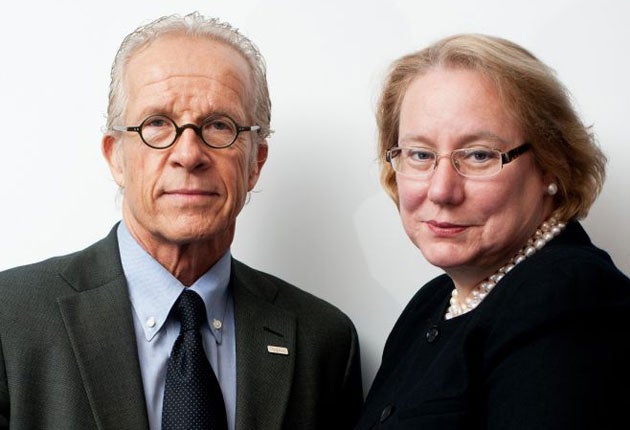US lawyer specialising in lawsuits against Catholic Church sets up UK practice

For much of the past 25 years Jeff Anderson has been the American Catholic Church’s bête noire. Working out of a small office in St Paul, Minnesota, the 63-year-old US attorney has spearheaded more than 1,500 lawsuits against the Church, winning millions of dollars for his clients and forcing open one of the world’s most secretive institutions.
Now the tough-talking lawyer with a taste for Zen Buddhism has co-founded a London-based law firm to bring sex abuse cases against churches in Britain. The new firm, Jeff Anderson Ann Olivarius Law, is one of the first attempts to create a cross-Atlantic practice dedicated to launching legal actions on multiple continents using aggressive litigation tactics honed for more than two decades in the US.
British law firms have long pursued the Catholic Church following a series of historical sex abuse scandals predominantly revealed in the early 2000s. Numerous cases have been settled, with a few still continuing.
Speaking at his new firm’s launch in central London, Mr Anderson claimed there was still room for a new practice inspired by his work in the US – where one diocese in Delaware recently declared bankruptcy due to the mountain of litigation it faced.
“Survivors have, and are, breaking their silence,” he said. “It is our hope, it is our plan, to use the very fine legal system here to get help for the wounded, those that have been harmed, and together with them do what we can to protect others from further harm.”
Ann Olivarius, an American-born British solicitor, came up with the idea to form a cross-Atlantic litigation firm with Mr Anderson.
“If you followed the clergy abuse scandal as it grew in the United States it was clear that, if not for Jeff Anderson, the Catholic Church hierarchy and its clergy might have never been held responsible as they are today,” she said. “It seemed to me we needed the same kind of pressure for justice and accountability on this side of the Atlantic.”
The Catholic Church in England and Wales has brought in tough child protection policies following a string of sex-abuse allegations. The number of accusations has since fallen, and the Vatican has held up the UK as an example for how other churches should deal with clerical sex abuse.
But Mr Anderson questioned whether enough had yet been done to help the victims of the abusers – and called on the Church to release any documents it has on abusive clergy. “The extent to which the bishops in the UK have taken some action, we applaud that,” he said. “But the extent to which they say the problem has been dealt with, we challenge that.
“We don’t know who the actual offenders are – that only they know about. Until they come fully clean with that, children are at risk here… across the land and across the globe.”
The new firm is paying particular attention to clerical abusers who moved between Britain, Ireland and the US during their careers.
On Monday, the firm launched its first civil lawsuit on behalf of an alleged American victim of an Irish priest in his eighties who cannot be named for legal reasons.
The suit was filed in a court in Minneapolis. It names as co-defendants the Diocese of Clogher in Ireland, the Diocese of New Ulm in Minnesota and the Servants of the Paraclete, an international Catholic congregation which was involved in the rehabilitation of priests.
The Servants of the Paraclete used to run a rehabilitation centre in Brownshill, Gloucestershire, but it closed in 1998. According to the lawsuit, the Irish priest spent time there in 1975 after three separate sex-abuse allegations were made against him. He lived in Britain until 1981 but was returned to ministry and later moved to the US, where fresh allegations have surfaced.
The new firm is now looking for British abuse survivors to come forward.
However, Justin Levinson, a barrister who specialises in child abuse compensation claims, questioned whether there would be enough future cases to sustain a new practice.
“There are still new abuse cases cropping up, not in their hundreds, but they are there,” he said. “Whether there are enough to sustain a dedicated practice, however, I’d be doubtful.”
Join our commenting forum
Join thought-provoking conversations, follow other Independent readers and see their replies
Comments